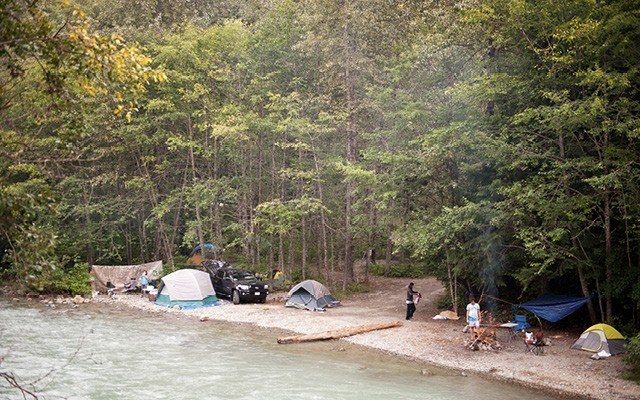A number of government agencies have come together to crack down on camping on Crown land near Whistler's boundaries.
Recently the Resort Municipality of Whistler (RMOW) became aware of "illegal campfires and trespassers" in the Whistler Interpretive Forest and the Wedge area, both of which sit within Crown land.
"While Crown Lands within the Whistler Interpretive Forest and the Wedge area are not within the RMOW's jurisdiction to enforce, work was done with the provincial and federal agencies that have jurisdiction over this area, including the RCMP, the Conservation Officer Service and the BC Ministry of Forests, Lands and Natural Resource Operations," read a statement from the municipality. "Among the concerns in this instance is urban interface fire threats given the South Coast ban on campfires and construction restrictions."
Although no-trace camping is permitted for 14 days on Crown land, all provincial regulations, such as fire bans, must be followed. Campfires were not permitted throughout the provincial South Coast zone until the ban was lifted Tuesday, Aug. 30. The Conservation Officer Service (COS) has issued one ticket so far to campers for an illegal fire, and provincial Natural Resource Officers have handed out approximately 20 trespass notices in Wedge and the Whistler Interpretive Forest over the past three weeks.
"Ministry staff are aware that many areas in the Sea to Sky region have long-term campers, and there have been reports of illegal fires, wildlife attractants, garbage and litter. There is also a significant problem with human waste when campsites are continually used over long periods without proper facilities," read an emailed statement from the Ministry of Forests.
Managing wildlife attractants left behind by the dozen or so campers officers encountered in the Cal-Cheak is a particular concern for the COS.
"There's no food storage there, there's no garbage containers, so there was a lot of bear attractants in that area," said Sgt. Simon Gravel. "For us it was important to make sure they would not be responsible for bear conflict."
With the community feeling the stress of the resort's current housing crunch, Whistler Community Services Society (WCSS) has seen an uptick in the number of homeless locally — including those living out of tents.
"In good weather, that works, but in rough weather, winter weather, that doesn't work," WCSS director Cheryl Skribe told Pique last month. "And that's people who have full-time jobs, who just have no place to live but are really very committed to Whistler and want to make it their home."




